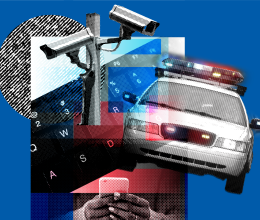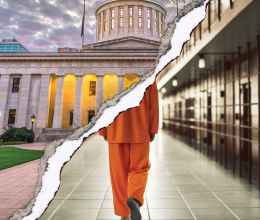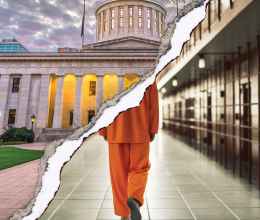*Explanations of students’ rights in this article are not legal advice. If you feel that your rights as a student may have been violated, please speak to and/or obtain a lawyer.
Though it seems like we likely won’t find out about whether we’ll physically be able to return to schools, colleges, and universities until it is literally time to begin classes, the fact of the matter is that as college and high, middle, and elementary students, we must know our rights so that if they are ever infringed upon, we can stand up for them. This is especially imperative in 2020, during which protests for Black Lives Matter and against COVID-related policies have rocked the nation. Students are not immune to the political and social climates around them, and oftentimes, they get involved in these movements, sometimes to the chagrin of the authorities around them. In the past several years, five specific movements have arrived on campuses and schoolyards and have gained major traction among students – these are: Occupy Wall Street (Occupy), deferred action for deportation (Dreamers), the Dakota Access Pipeline, March For Our Lives, and Black Lives Matter. These have resulted in “the most forceful surge of youth activism since the 1960s.” With student-led movements and activism, one area that often becomes less clear is what rights students have. After all, there are plenty of moments in U.S. history that have shown clear and egregious violations of students’ rights – with the Kent Shooting in Ohio being one of the most egregious of all. This is exactly why as students across Ohio return to school, many with a new or revitalized motivation in activism, they should know exactly what their rights are – regardless of whether they’re student activists or not.*
- The First Amendment: Students & Free Speech
In 1969, a landmark case brought by the ACLU on the behalf of three students who were suspended for wearing armbands in order to protest against the Vietnam War, resulted in a ruling in which SCOTUS declared that teachers and students are absolutely not shed of “their constitutional rights to freedom of speech or expression at the schoolhouse gate.” Essentially, this reaffirms the First Amendment on campus and in schoolyards, ensuring students cannot be punished for exercising this right – regardless of whether school authorities agree and/or approve of what they’re proclaiming Unfortunately, however, SCOTUS has also delivered rulings in which students’ speech has been constrained. Unfortunately, school authorities are currently allowed to censor student-newspaper articles and further restrict students when it comes to speech that they may consider to be vulgar, lewd, promoting drug use, causing “material and substantial disruption” to school, or infringing upon another student’s rights.
- The Fourth Amendment: Students, Searches, & Seizures
Simply put, school officials do not need an authorized warrant before searching a student under their authority. They only need to have “reasonable suspicion” in order to search students’ person and belongings – thus creating very grey areas when it comes determining whether a search is permissible or a violation of a student’s rights. Reasonable suspicion holds lower requirements than probable cause and is permissible when the information obtained by school authorities point to a “moderate chance” of finding incriminating evidence. Random drug tests, regardless of proof or suspicion of drug use by the student, are also permitted.
- Students, Technology, and Virtual Learning
As many schools and colleges are turning to online and virtual learning, there are additional elements when it comes to student rights. Are school and college authorities allowed to censor students online? No – as long as are using a personal email address or account, and are on a private computer with a private internet connection. Posts on social media, blogs, or personal email are generally protected – even if they are critical of the school or school officials. However, and this goes back to point #1 – if “substantial and material” disruption is caused in the school environment, then you may be disciplined for out-of-school online conduct. This brings into question about school-assigned technology. Unfortunately, partly due to the emergency rampant increase of school-issued technology due to COVID-19, there are no firm and specific laws outlining what rights students and their families have when it comes to what school officials can and cannot do when it comes to school-owned technology that is being used by students. Therefore, it is imperative to take note of what school policies are and to make sure that individual rights are just signed – or assumed – away.
- School Officials and Personal Phones, Tablets, and Laptops
It seems that when it comes to phone rights, students and even officials seem to be confused about what rights students may have when it comes to their own personal cell phones. While students definitely have the right to their phone privacy, schools can restrict when you may use your phone and are also able to confiscate it for a myriad of reasons. If a school official asks for permission to go through your phone, you can decline – and if you say yes, you forfeit this right, allowing them to use any evidence they find on your phone against you. When it comes to your phone, a warrant must be issued based on probable cause in order for search and seizure. In the event that a warrant is obtained, authorities may only look for a violation of the law that they suspect you have broken. For example, if a school official has probable cause that you were breaking law by utilizing texting for an illicit drug sale, they can only search through your text messages. Your photos, contacts, and other parts of your phone would remain off limits. These same rules apply to tablets and laptops.
- Dress Code Rights
Are you thinking of wearing a Black Lives Matter, Pro-Choice, or another type of shirt that makes a political statement to school but are afraid that you might be reprimanded for doing so? Clothing is a form of silent expression, and while you have the right of freedom of expression through the First Amendment, clothing choices must not disrupt the school environment, and Ohio law does allow school boards to make dress codes within reason. Therefore, it is vital to check what your individual school has instituted for dress code policies. School officials cannot ban t-shirts simply because they do not like the message, but they can ban t-shirts with “indecent” speech or messages that could cause violence or disruption in school.
- Participating in Walkouts
You may also be wondering – can school officials punish you for participating on in a walkout? The answer is simple: yes, but you can only be punished for missing class the same way you would for any other reason. In other words, you cannot be punished more harshly because of the fact that it was in protest or for a political purpose. Therefore, it is recommended that before participating in a walkout, you may want to look up and educate yourself on the policies for unexcused absences for your school and school district. Obtaining knowledge about truancy and school suspensions is also recommended.
- The Pledge of Allegiance
For decades, students have opted out of reciting the Pledge of Allegiance as a form of dissent. In fact, nearly 80 years ago, SCOTUS ruled that requiring students to recite the pledge was a violation of their First Amendment Rights. This act, which is considered to be ‘symbolic speech’ as students remain silent, is protected (again, if it does not create a significant disturbance), but it is important to note that this ruling does not include refusal to stand, and SCOTUS has not ruled on this. Due to this, while it is clear students can stand and remain silent, whether students are allowed to sit in protest depends on state laws and is often confusing. So what does that mean for Ohio? To be quite frank, it is uncertain. While a statute specifically provides that students may not be required to participate in the recitation of the pledge, nor may the district permit the intimidation of any student or by other students or staff aimed at coercing participation, it is unfortunately unclear if sitting is included in these protections.
*Explanations of students’ rights in this article are not legal advice. If you feel that your rights as a student may have been violated, please speak to and/or obtain a lawyer.







